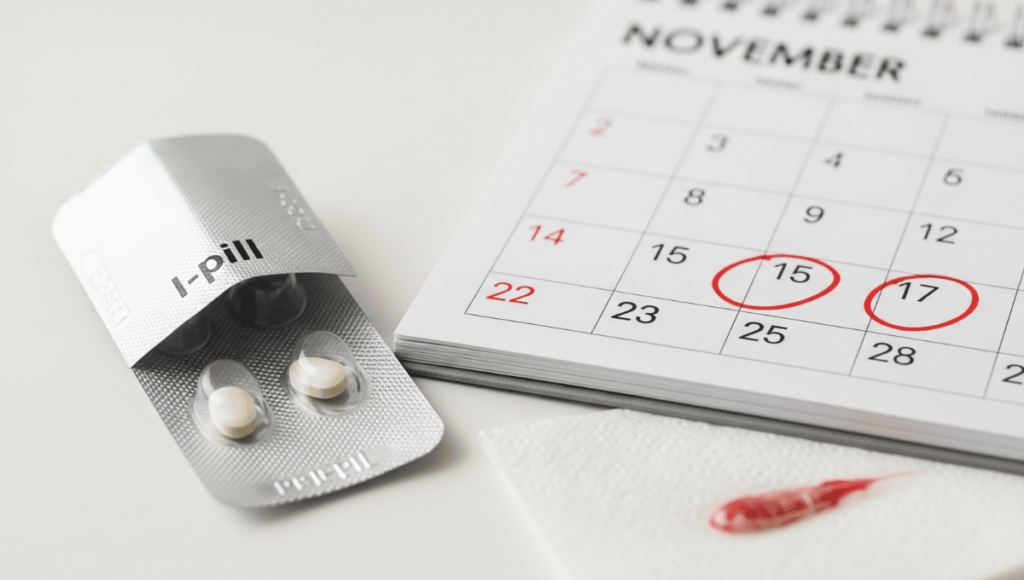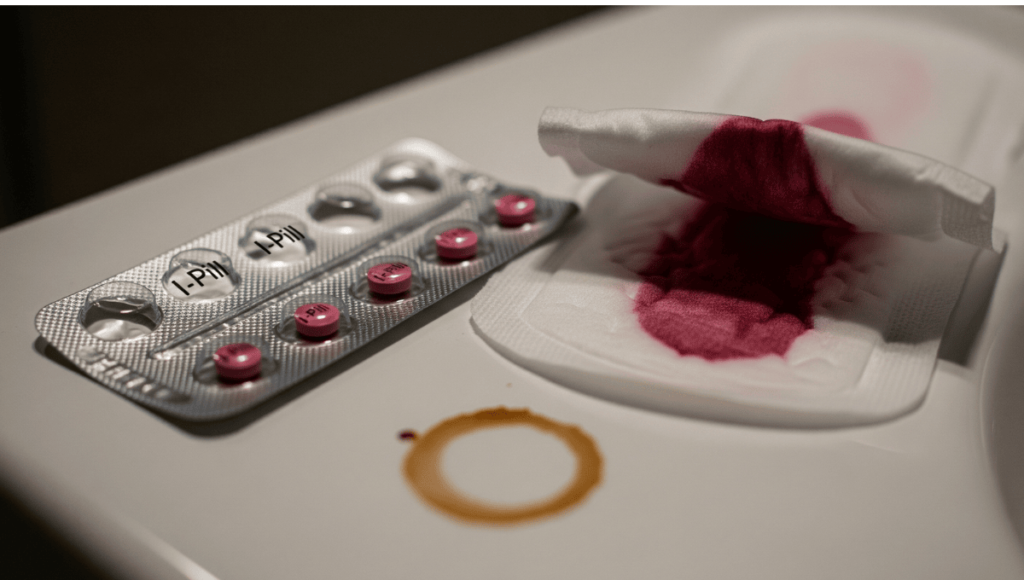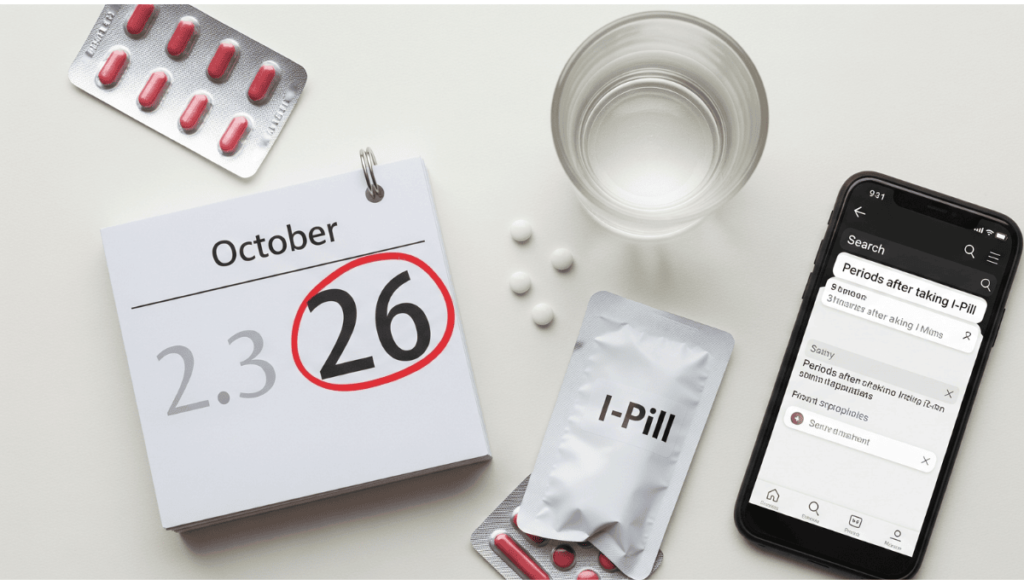- What Is i-Pill and How Does It Work?
- When Will I Get My Period After Taking iPill?
- Is It Normal to Miss or Delay Period After i-Pill?
- Should I Be Worried If Period Is Delayed?
- How Often Can I Take i-Pill?
- Expert Advice by Dr. Rashmi Prasad – IVF & Fertility Doctor in Patna
- Conclusion – Don’t Panic, But Stay Aware
This content is all about When Will I Get Periods After Taking ipill?. Emergency contraception like i-Pill is used when there’s a risk of unwanted pregnancy. It works fast. But it often leaves women confused, especially about their periods.
Some get scared when their period is late. Others panic when they see early bleeding. That’s why we asked Dr. Rashmi Prasad, an IVF & fertility specialist in Patna with over 25 years of experience, to clear things up.
At her centre, Diwya Vatsalya Mamta Fertility Centre, women get real answers. Whether it’s about birth control or fertility, her advice is trusted.

The positive reviews say a lot about her. She is not only a doctor but also acts as your friend and companion to make you feel comfortable and stress-free.
Let’s discuss in detail.
What Is i-Pill and How Does It Work?
i-Pill is an emergency contraceptive. It’s taken after unprotected sex or when regular birth control fails.
It contains Levonorgestrel. That’s a synthetic hormone. Here’s how it helps prevent pregnancy:
- It delays ovulation
- It prevents the sperm from meeting the egg
- It changes the uterine lining to stop implantation
You must take it within 72 hours of sex. Sooner is better. It works best in the first 24 hours.
But remember, this pill is not meant for regular use. It’s only for emergencies.
When Will I Get My Period After Taking iPill?
Most women get their periods within 1 to 3 weeks after taking i-Pill. But don’t expect it to be the same for everyone.
Some get earlier-than-usual bleeding (withdrawal bleeding). It may happen within a week. Others may notice delayed periods by up to 7–10 days.
This is because:
- The day of your cycle when you take the pill affects when your period will come.
- Hormonal changes caused by the pill can shift your natural cycle timing.
- Your body weight and metabolism change how your body responds to the pill.
- Stress and worry can delay your period by affecting your hormones.
If your period is delayed by more than 3 weeks, take a pregnancy test. Then consult a gynecologist.
Is It Normal to Miss or Delay Period After i-Pill?
Yes. It’s common.
i-Pill is a high-dose hormone. It can throw your cycle off. After taking the i-Pill, many women notice some changes in their periods. Some get their period earlier than they expected. Others find their period is delayed and comes later than usual.
The flow of blood can also change. Sometimes it is heavier, and other times it may be lighter than normal. Some women experience spotting, which means small amounts of bleeding between their regular periods.
It is also common to feel cramps even if no bleeding happens. This happens because your body is adjusting to the hormone changes caused by the pill.
These changes are usually temporary and your cycle should return to normal in the next month or two.
These are short-term effects. Most cycles return to normal within a month. If not, get medical advice.
Should I Be Worried If Period Is Delayed?
Not always. But it depends on how long the delay is:
- If it’s less than 7 days late, there’s no need to worry. Just wait and keep an eye on your cycle. Sometimes your body just needs a little more time to adjust.
- If the delay is between 7 to 14 days, it’s a good idea to take a home pregnancy test. This will help you know if the pill worked or if you might be pregnant.
- If your period is late by more than 3 weeks, you should see a gynecologist as soon as possible. They can check what’s going on and give you the right advice or treatment.
Also keep this in mind:
- If you vomit within 2 hours of taking the pill, it may not work
- In such cases, the pill may need to be taken again
How Often Can I Take i-Pill?
i-Pill is not for regular use. Use it only once in a cycle.
Taking it too often can:
- Disturb your hormone levels
- Cause irregular periods
- Affect your fertility over time
If you need regular protection, try safer options:
- Oral contraceptive pills (OCP)
- Copper-T
- IUD
- Injections
Always consult a doctor before choosing.
Expert Advice by Dr. Rashmi Prasad – IVF & Fertility Doctor in Patna
Dr. Rashmi Prasad has helped thousands of women over the years. Many visit her worried after taking i-Pill.
Her advice is simple:
“Don’t panic if your period is late after taking i-Pill. Monitor your cycle, stay calm, and take medical advice if the delay exceeds 2 weeks.”
At Diwya Vatsalya Mamta Fertility Centre, she offers complete women’s reproductive health services. From birth control to IVF, everything is available under one roof.

Her team listens. Her care is personal. Women feel heard and supported.
Conclusion – Don’t Panic, But Stay Aware
i-Pill works. But it brings changes to your body.
Your period may come early. Or it may be late. You might spot. You may cramp. These are normal reactions to a high-dose hormone.
Stay aware:
- If your period doesn’t return in 3 weeks, take a test
- If you feel anything unusual — pain, heavy bleeding, or weakness — speak to a doctor
Emergency contraception like i-Pill is useful. But use it wisely. Only once in a cycle.
For regular protection, use reliable methods. Talk to a doctor. Don’t guess.
If you’re unsure or worried, reach out.
Consult Dr. Rashmi Prasad, Bihar’s most trusted name in fertility and women’s health.
At Diwya Vatsalya Mamta Fertility Centre, support is always ready. You don’t have to deal with this alone. Help is just one step away.



